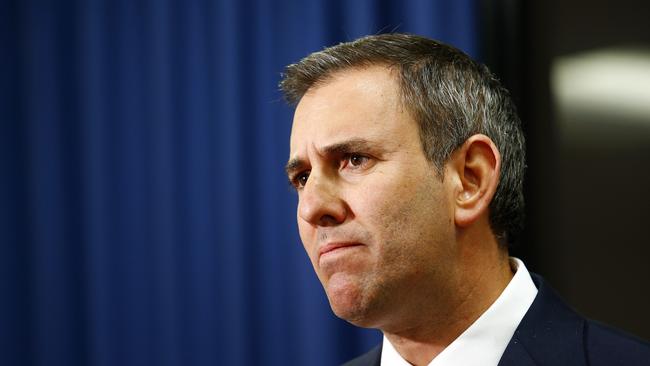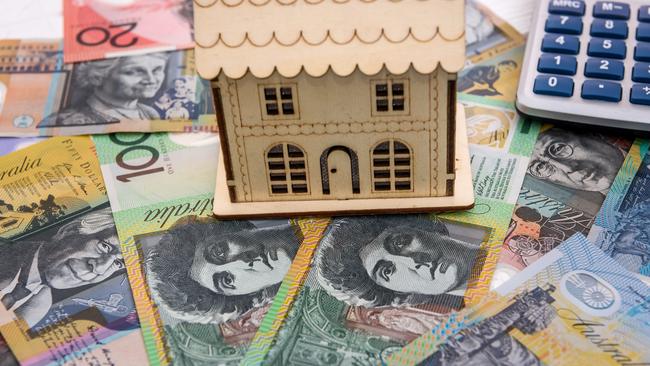Inflation slows to 6.0 per cent in June but renters continue to feel the squeeze
One group of Australians have been dealt a brutal blow as fresh figures renew calls for the Prime Minister to urgently act.
Economy
Don't miss out on the headlines from Economy. Followed categories will be added to My News.
The steepest rent hike since 1988 has renewed a brawl over Anthony Albanese’s signature housing policy, with its biggest critic calling for the Prime Minister to come to the table and take action.
Fresh figures from the Australian Bureau of Statistics show rents have increased 2.5 per cent in the three months to June, the largest quarterly increase in 35 years.
Rents have now risen 6.7 per cent annually, the largest rise since 2009, reflecting the squeeze on vacancy rates.
Greens housing spokesman Max Chandler-Mather immediately jumped on the figures and called on Mr Albanese to co-ordinate a rent freeze and cap on rent increases “as soon as possible”.
“It’s clear that unless the federal government caps rents then it will take much longer to get inflation under control, which means more rate rises,” the Griffith MP said.

“This huge rise won’t surprise anyone who’s trying to stand out among hundreds of applications for the few rentals they can afford or who’s just been told by their real estate agent that yet another rent rise is on the way.
“This leaves renters getting hit twice – first by the housing crisis and then by the cost of living crisis fuelled by their rising rents.”
Labor went to the last election promising to establish a $10bn housing fund to spend up to $500m per year to build 30,000 affordable homes over five years.
But the Housing Australia Future Fund has been twice stalled in the Senate after the Greens stood firm on demands for the government to spend more and get the states to agree to a national rent freeze.
Treasurer Jim Chalmers said a shortage of rental properties pushing rent inflation underscored the need for the fund.

Overall, headline inflation fell for the second consecutive month to 6 per cent in the year to June, down from 7 per cent in the March quarter and 7.8 per cent in December.
ABS head of prices statistics Michelle Marquardt said the quarterly rise of 0.8 per cent in June was the lowest since September 2021.
“While prices continued to rise for most goods and services, there were some offsetting price falls this quarter including for domestic holiday travel and accommodation and automotive fuel,” she said.
Dr Chalmers acknowledged households continued to feel the hip pocket squeeze but welcomed inflation “tracking downwards in the right direction”.
The result is expected to take some of the pressure off the Reserve Bank of Australia to lift rates next month.
A dip in core or underlying inflation, which strips out volatile items like fruit, vegetables and petrol, to 5.9 per cent from 6.6 per cent will be welcome news for the RBA board.
Oxford Economics Australia head of macroeconomic forecasting Sean Langcake said the result would “buy the RBA some more time and allow them to keep rates on hold a little longer”.
But Deloitte Access Economics partner Stephen Smith said Wednesday’s data was a sign the central bank had gone too far.
“The Australian economy is softening dramatically, the pace of inflation has peaked and is moderating quickly and wage growth is not excessive and medium-term inflation expectations are not rising,” he said.
“In that context there should be no further interest rate increases in Australia.”
Despite the easing, inflation remains well above the RBA’s target range of 2 to 3 per cent.
Last month, the central bank flirted with the idea of raising interest rates but ultimately kept the rate on hold at 4.10 per cent – arguing the full effect of the tightening cycle had yet to be felt.
A stronger-than-expected jobs result last week defied expectations to keep the unemployment rate at a near 50-year low of 3.5 per cent.

It led to speculation the board could lift rates again in what will be boss Philip Lowe’s penultimate meeting as governor.
Dr Lowe has repeatedly said the board would do whatever it takes to bring inflation down.
His replacement, incoming Michele Bullock, has previously said the jobless rate would need to rise to about 4.5 per cent to curb inflation.
Since May 2022, the RBA has lifted the cash rate from a record low 0.1 per cent in a bid to tackle soaring inflation.
The ABS’ monthly indicator, also released on Wednesday, moderated to 5.4 per cent over the 12 months to June, from 5.6 per cent over the year to May.
The RBA is not forecasting a return to the target band of 2 and 3 per cent until mid-2025.
Originally published as Inflation slows to 6.0 per cent in June but renters continue to feel the squeeze
Read related topics:Anthony Albanese




